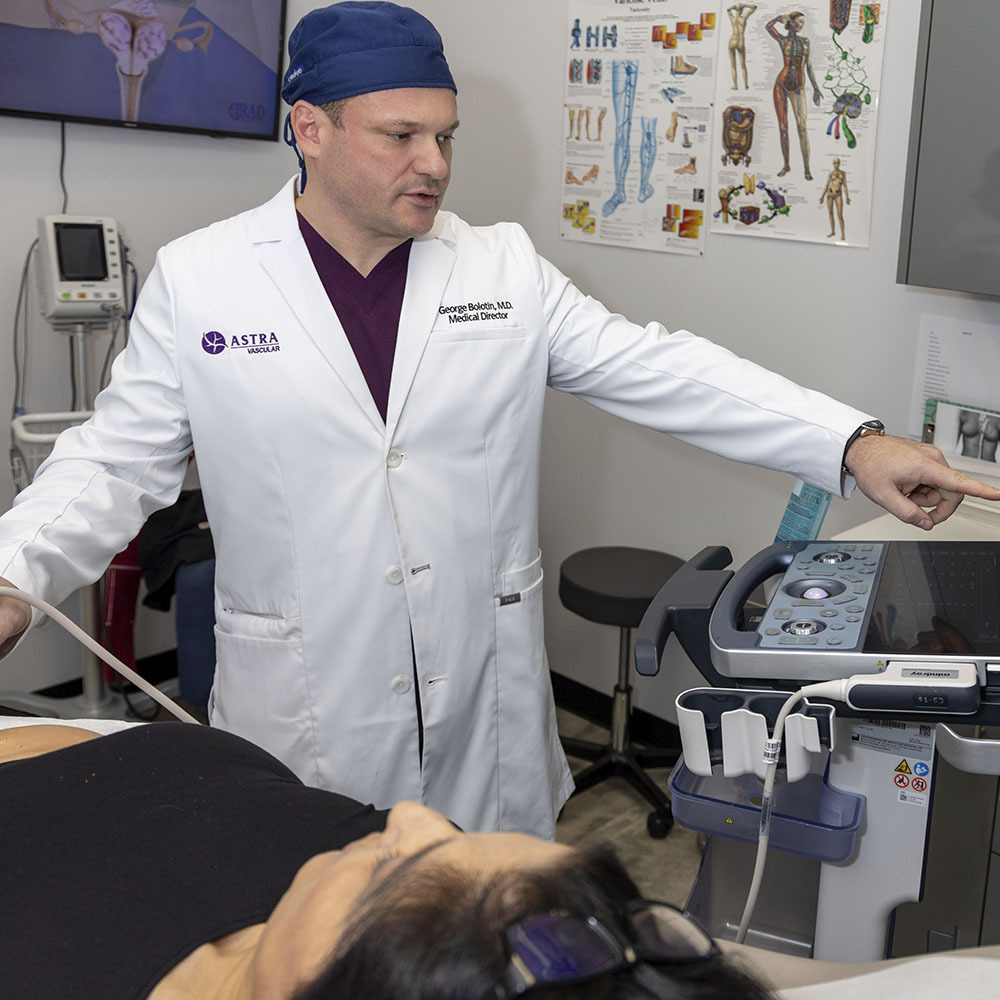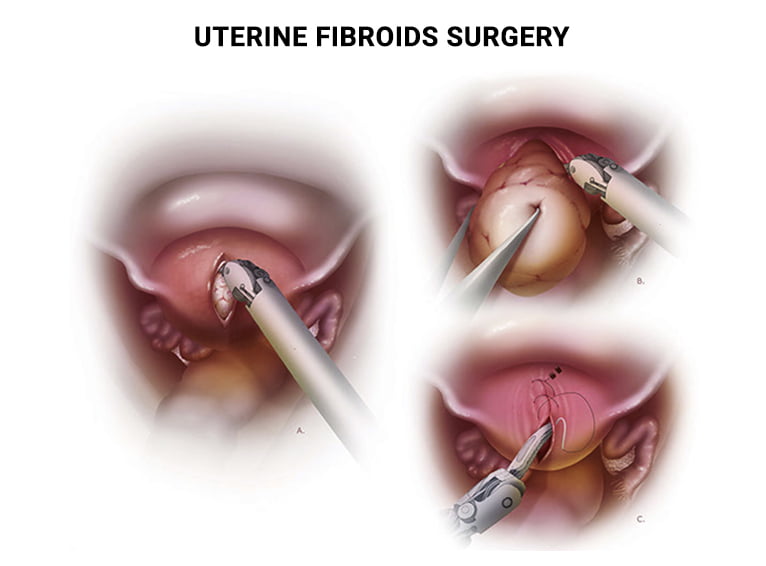
Uterine fibroid surgery is often recommended when other treatment options fail to provide relief or if the fibroids pose a risk to your health. When your doctor finds fibroids growing on your uterine wall, you may need to take action to remove them. When you consider how to get rid of fibroids, you have several options before you get to fibroid removal surgery. But if you need surgery, the best way to ensure a successful procedure is trusting a fibroid doctor like Dr. George Bolotin at Astra Fibroid Treatment Specialists in Brooklyn, NY and Bronx, NY. Don’t let fibroids jeopardize your fertility; seek minimally invasive fibroid removal surgery. Call today to discover what’s best for you.
 Fibroids are abnormal growths attached to your uterine wall. If they get large enough or turn out to be cancerous (which is rare), they may have to be surgically removed. Fibroids that require removal manifest themselves in several types and conditions, such as:
Fibroids are abnormal growths attached to your uterine wall. If they get large enough or turn out to be cancerous (which is rare), they may have to be surgically removed. Fibroids that require removal manifest themselves in several types and conditions, such as:
Affecting more than 80 percent of women over the age of 50, including African American women, fibroids sometimes cause a number of uncomfortable symptoms. Many women choosing fibroid removal suffer from symptoms that include:
If any of these symptoms sound familiar, seek a diagnosis and cure from the Astra Fibroid Treatment Specialists in Brooklyn, New York and Bronx, New York. Dr. George Bolotin, founder of the practice and an accomplished Interventional Radiologist, is one of the region’s premier experts in treating uterine fibroids. He takes pride in delivering tender and compassionate care.

When your doctor recommends fibroids removal, there are still several methods to try besides surgery, which is always the last option. But if your specialist says that it’s medically necessary to remove your fibroids, they have to come out. When you trust your care to a trained expert like Dr. Bolotin, you have some choices besides surgery. When developing a customized plan on how to get rid of your fibroids, your doctor may recommend an alternative such as:
Despite the minimally invasive nature of these treatments, they’re not always appropriate. Dr. Bolotin may recommend uterine fibroid removal surgery for specific reasons, such as:
While uterine fibroid removal surgery results in very few complications, choosing an accomplished fibroid specialist like Dr. Bolotin improves your chances of success. To further reduce complications, you can take vitamins and mineral supplements. If you suffer from anemia due to heavy periods, you can benefit from additional iron.
During uterine fibroid surgery, also known as a myomectomy, your Brooklyn and Bronx-based fibroids expert removes the fibroids from your uterine wall through one of several minimally invasive surgical procedures, including:
In the end, your uterus is fully functional, allowing you to have children in the future. In contrast, a hysterectomy involves the complete removal of your uterus, making it impossible to have children.
Once Dr. Bolotin completes your surgery and is ready to discharge you from the clinic, he gives you post-operative instructions. He may prescribe over-the-counter or prescription-strength painkillers, and you may need special diet instructions. You may experience some bleeding for a few days or a week after the procedure, but this is normal and will pass.
We work with over 200 insurance plans, including Aetna, Humana, Medicare, and Medicaid, to ensure your coverage is maximized without any complications. More than 97% of our vein treatments are covered by insurance. Book a free consultation with the vein specialists at Astra Vein Treatment Center today! We look forward to welcoming you at our Brooklyn or Bronx locations.

Most women benefit from symptom relief and improved fertility. There’s no need to suffer from fibroids pain, discomfort or complications due to untreated uterine fibroids. Contact the Astra Fibroid Treatment Specialists today to schedule your initial consultation for fibroid removal in Brooklyn.
Vein & Vascular Medical Care
4209 Ave U, Suite A.
Brooklyn, NY 11234
(347) 934-9068
Vein & Vascular Medical Care
869 E Tremont Ave
Bronx, NY 10460
(929) 447-4563